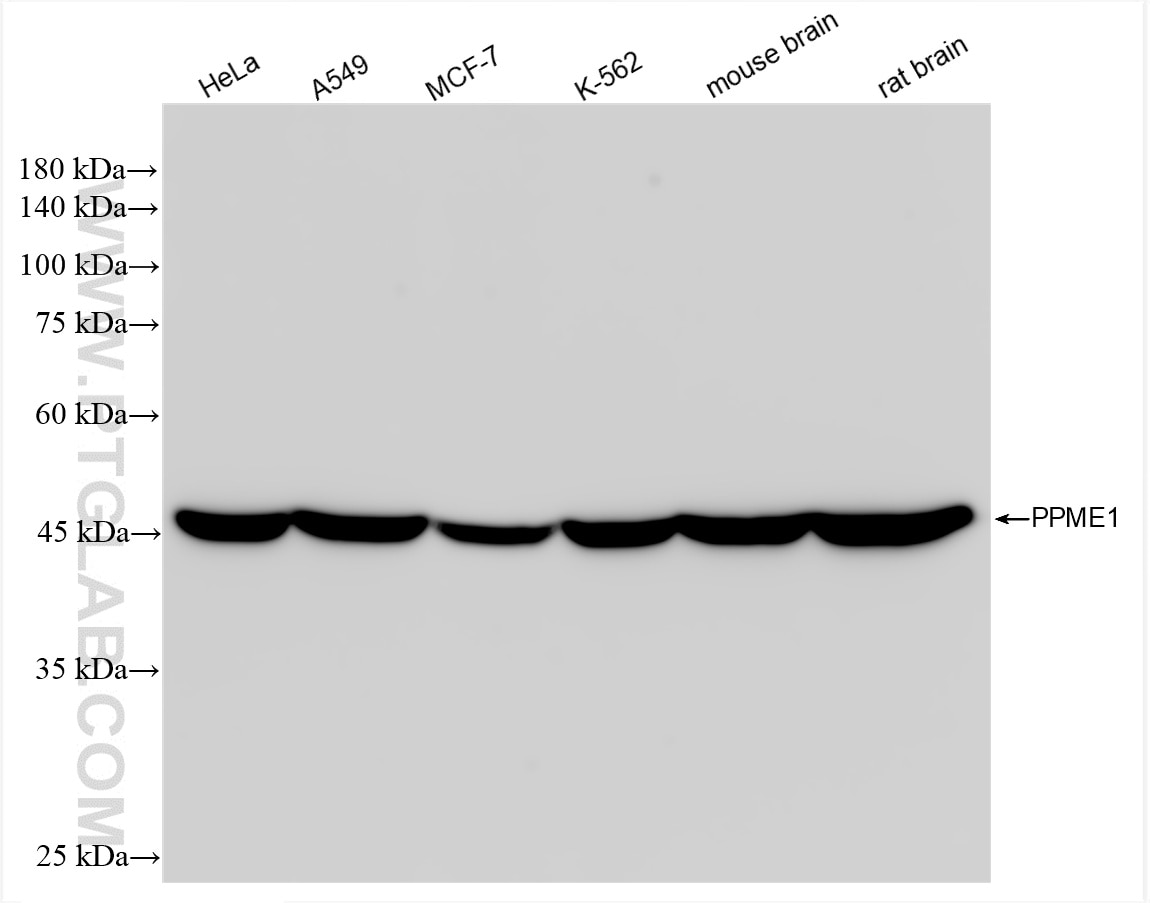Tested Applications
| Positive WB detected in | HeLa cells, A549 cells, MCF-7 cells, K-562 cells, mouse brain tissue, rat brain tissue |
Recommended dilution
| Application | Dilution |
|---|---|
| Western Blot (WB) | WB : 1:2000-1:10000 |
| It is recommended that this reagent should be titrated in each testing system to obtain optimal results. | |
| Sample-dependent, Check data in validation data gallery. | |
Product Information
85221-5-RR targets PPME1 in WB, ELISA applications and shows reactivity with human, mouse, rat samples.
| Tested Reactivity | human, mouse, rat |
| Host / Isotype | Rabbit / IgG |
| Class | Recombinant |
| Type | Antibody |
| Immunogen | PPME1 fusion protein Ag5817 Predict reactive species |
| Full Name | protein phosphatase methylesterase 1 |
| Calculated Molecular Weight | 42 kDa |
| Observed Molecular Weight | 44 kDa |
| GenBank Accession Number | BC050705 |
| Gene Symbol | PPME1 |
| Gene ID (NCBI) | 51400 |
| Conjugate | Unconjugated |
| Form | Liquid |
| Purification Method | Protein A purification |
| UNIPROT ID | Q9Y570 |
| Storage Buffer | PBS with 0.02% sodium azide and 50% glycerol, pH 7.3. |
| Storage Conditions | Store at -20°C. Stable for one year after shipment. Aliquoting is unnecessary for -20oC storage. 20ul sizes contain 0.1% BSA. |
Background Information
PPME1 (Protein phosphatase methylesterase 1) is a protein phosphatase 2A (PP2A)-specific methyl esterase that negatively regulates PP2A through demethylation at its carboxy terminal leucine 309 residue (PMID: 24253382). PPME1 plays an important role in the development of cancers and may be a biomarker for pancreatic carcinoma, gastric and lung cancer (PMID: 32351291).
Protocols
| Product Specific Protocols | |
|---|---|
| WB protocol for PPME1 antibody 85221-5-RR | Download protocol |
| Standard Protocols | |
|---|---|
| Click here to view our Standard Protocols |



